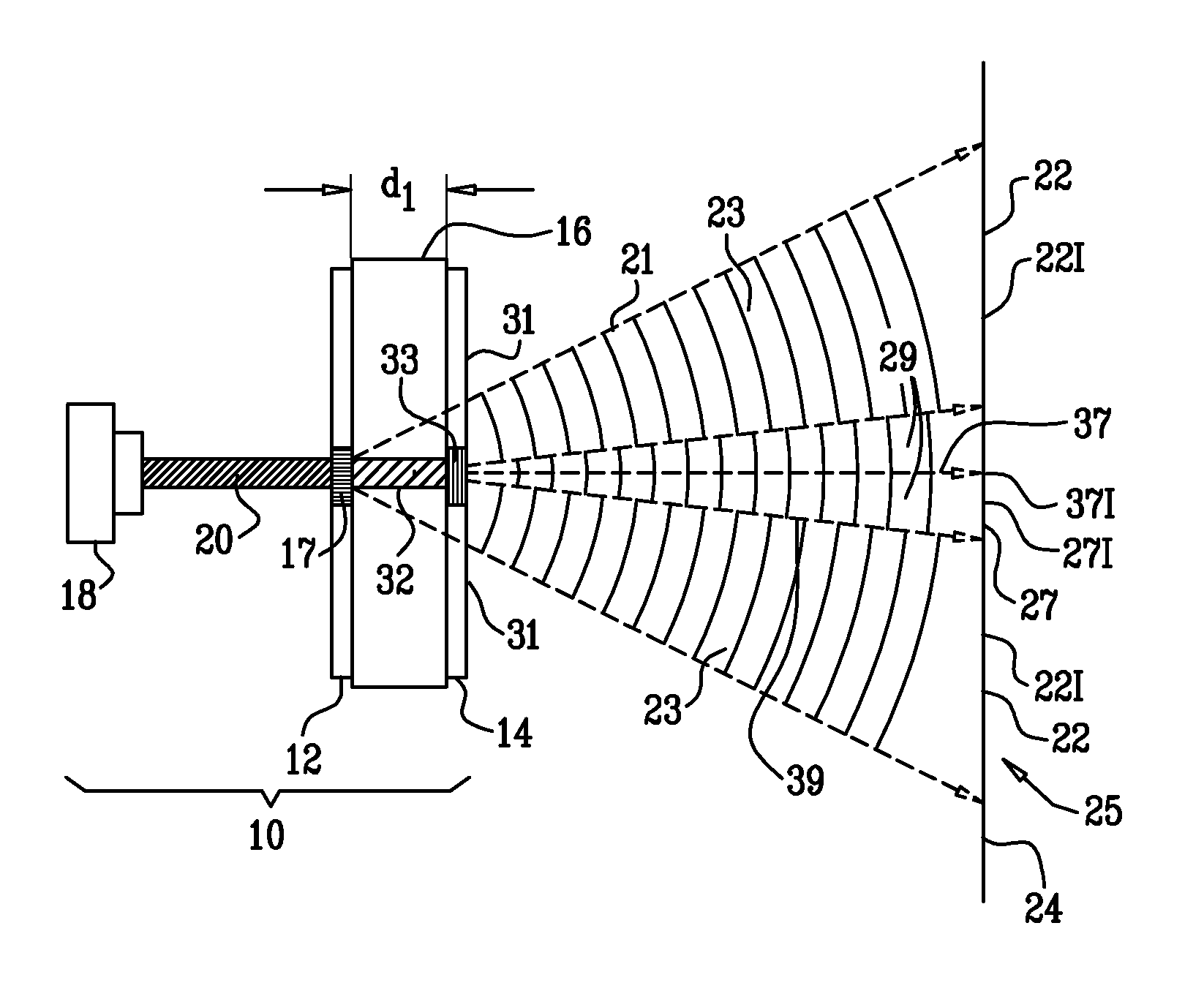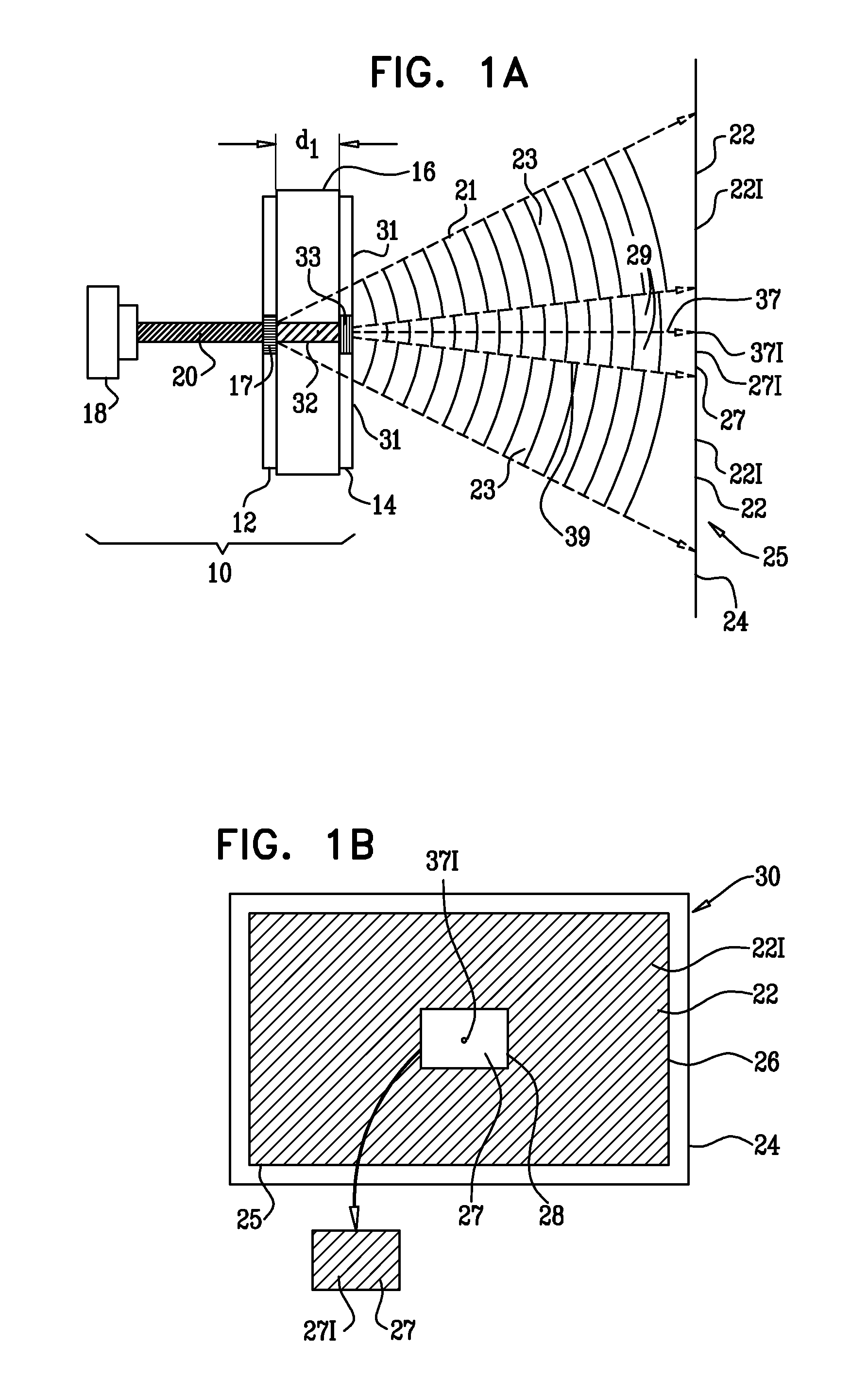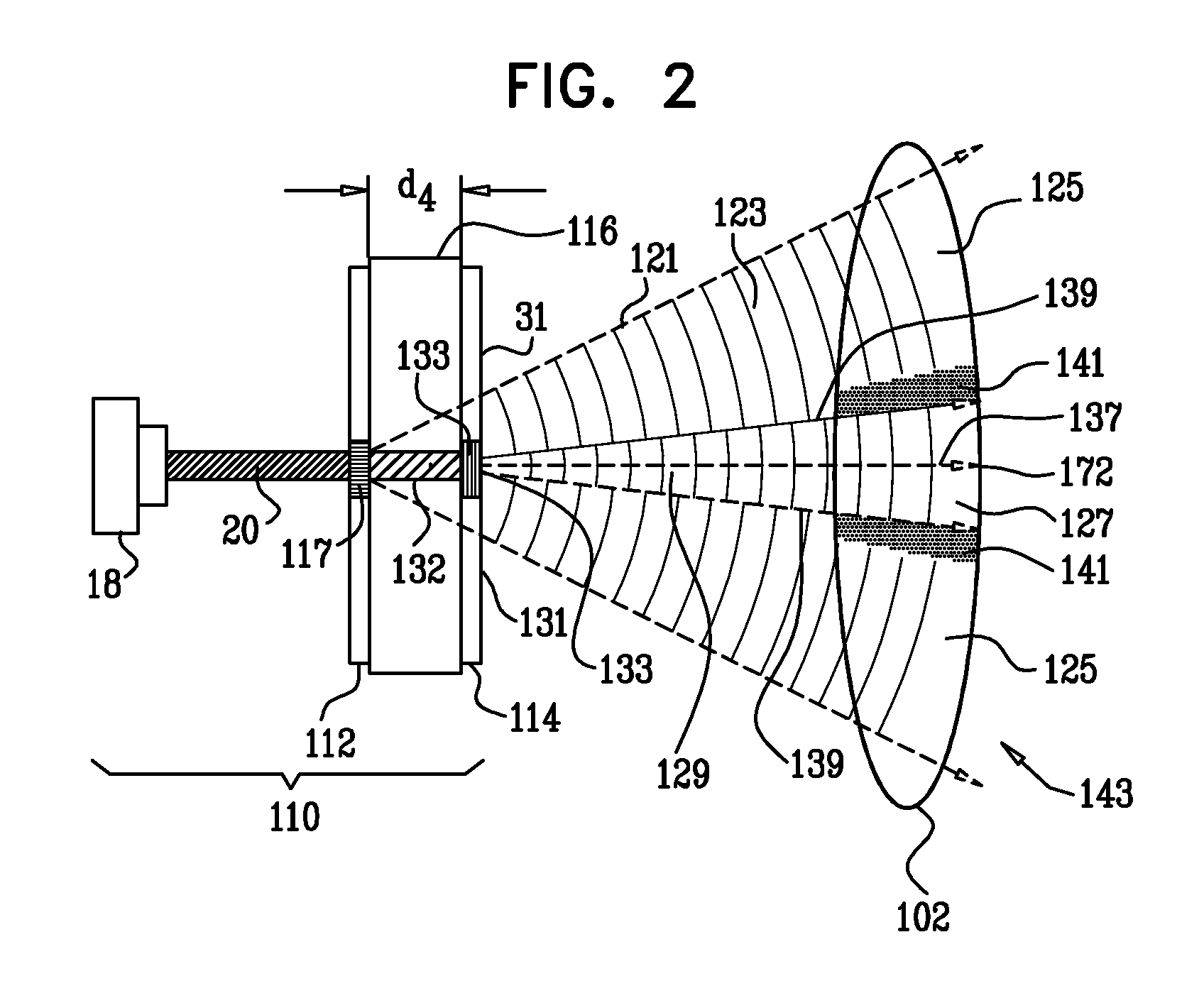Optical designs for zero order reduction
a technology of optical designs and zero order reduction, applied in the field of optical pattern generation, can solve the problems of poor uniformity of a projection method, unusable for certain applications, and may suffer from the so-called zero order problem
- Summary
- Abstract
- Description
- Claims
- Application Information
AI Technical Summary
Benefits of technology
Problems solved by technology
Method used
Image
Examples
Embodiment Construction
[0030]In the specification and in the claims, a tiling of a region of a plane is assumed to comprise a collection of plane figures, or tiles, that fill the region with no significant overlaps and with no significant gaps.
[0031]Reference is now made to FIG. 1A, which is a schematic side view of an optical apparatus 10, and to FIG. 1B, which is a schematic diagram illustrating regions upon which apparatus 10 projects, according to an embodiment of the present invention. Apparatus 10 comprises a first diffractive optical element (DOE) 12, and a second DOE 14. By way of example, in the following description DOE 12 and DOE 14 are assumed to be substantially parallel to each other, being separated by a distance “d1.” However, the two DOEs do not need to be parallel to each other, and may be aligned with respect to each other at any convenient angle. In apparatus 10 DOE 12 and DOE 14 are assumed, by way of example, to be formed on first and second surfaces of a single transparent optical e...
PUM
 Login to View More
Login to View More Abstract
Description
Claims
Application Information
 Login to View More
Login to View More - R&D
- Intellectual Property
- Life Sciences
- Materials
- Tech Scout
- Unparalleled Data Quality
- Higher Quality Content
- 60% Fewer Hallucinations
Browse by: Latest US Patents, China's latest patents, Technical Efficacy Thesaurus, Application Domain, Technology Topic, Popular Technical Reports.
© 2025 PatSnap. All rights reserved.Legal|Privacy policy|Modern Slavery Act Transparency Statement|Sitemap|About US| Contact US: help@patsnap.com



